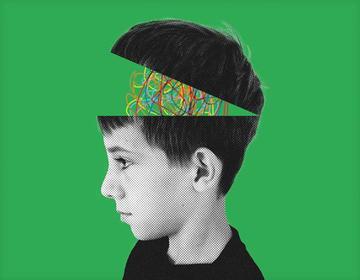
The BBC Panorama programme Kids in Crisis, highlighted the current state of services for young people struggling with their mental health up and down the country. CAMHS services currently treat 400,000 young people suffering from a range of issues including OCD, self-harm, anxiety and suicidal tendencies.
The CAMHS service in Gloucestershire is perhaps typical of those across the UK. Over the past five to ten years, gaining access to their services appears to have become much more difficult. Parents find they wait a long time for an assessment, and when they do their child is deemed to not meet the thresholds for clinical support.

At The Door we work week-in week-out with families and young people who are rejected by CAMHS, or who receive a “short-term intervention” of six to eight weeks and then are referred to us for mentoring.
When we launched our mentoring scheme, we were generally supporting young people who were getting into a bit of trouble at school, or were coping with family breakdown. Occasionally we’d help someone with anxiety or depression or someone who was self-harming.
We’re not specialist mental health workers. Our mentors are recruited from local churches and communities. They’re volunteers who are trained by us and supported by our professional team of co-ordinators. But they’re basically people who want to help young people in need by giving an hour or so a week of their time to provide a listening ear and a friendly face.

This year our referral rate has doubled. We are now mentoring over 50 young people at any one time. The majority have severe mental health issues or are under social care and at risk of being taken into the care system.
The simple fact is there is not enough finance in the health system to cope with the epidemic of mental health issues in the UK’s children and young people. There are two reasons I can see for this. Firstly, in real terms funding has been cut. Secondly, the number of young people with recognisable mental health issues is growing year on year. Our young people are hurting, confused, hopeless and desperate. These manifest themselves in the mental health symptoms we see day-in day-out at The Door.
As Christians, we are called to set captives free – and young people are trapped in mental health disorders which are stopping them reach their God-given potential. As a Christian in a local church you might feel helpless to respond. I get that, I lead an organisation which does help, and I still feel helpless every day.
But I can help and you can too. We can find ways to fill the gaps left by the inadequacies of the CAMHS services. Creating space for young people to be open to talk about their worries, stresses, and concerns is vital. As youth and children’s workers we must remember that our focus needs to be on building relationships with young people where they trust us and can talk to us. Our programmes and activities need to be secondary to this.
You might not be in a position to create a professionally run mentoring scheme, but there are great Christian organisations all over the country – either independent like ours or linked to national organisations like Youth For Christ or XLP who are always looking for volunteers to train and support.

Perhaps more importantly for the future of our children, we need to engage with the causes of the mental health epidemic in our society. If a hole opened up in the high street of our town and people kept falling in and breaking their legs, would we respond by training more paramedics, triage nurses and surgeons? Or would we fill the hole?
Filling ‘the hole’ of mental health issues means we need to agree on what the causes are. We need to enter the debate about how pressures on young people from academia, the media and the internet can create negative thinking. We need to challenge the cultural norms which lead to anxiety, depression and hopelessness. And as the Church we need to provide alternatives.
We need to promote a culture which says “it’s OK to be not OK”, we need to put our identity in Christ above and beyond our identity in celebrity or materialism or the job we do. We need to help young people engage with spiritual disciplines like sabbath, retreat and prayer – things that centre them in the here and now and not the pain of the past or the worry about the future. Above all, we need to pray – for young people who are hurting, for their parents who are feeling lost and ashamed and for the professionals at CAMHS and other services who are stretched and overwhelmed.
For more on mental health, check out the October issue of Premier Youth and Childrens Work




























